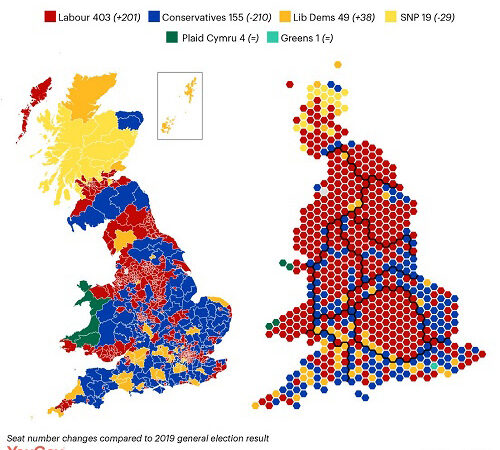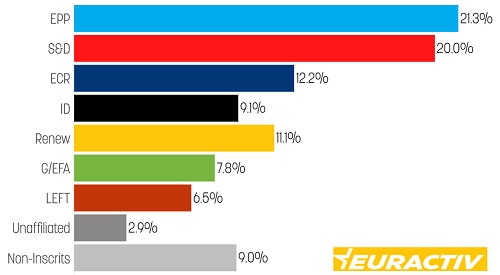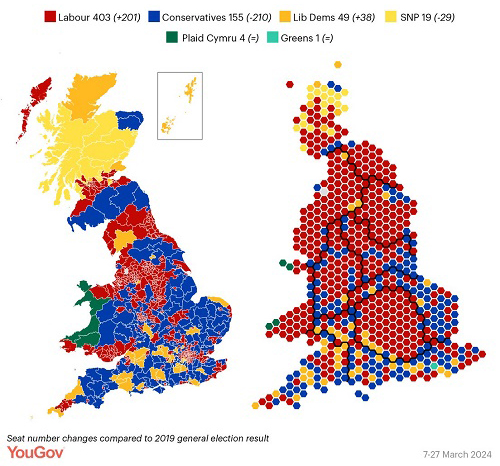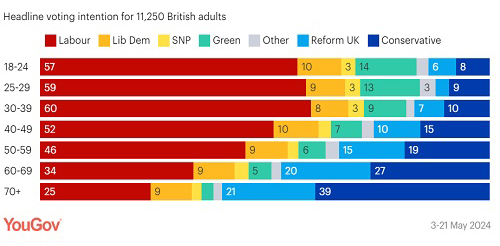EU and UK elections will likely set new course for Europe, as geopolitical tensions rise – Chemicals and the Economy


The Golden Rule for elections is that governments lose elections. Oppositions only win when the voters don’t like what has happened and want a change.
This week’s EU Parliament elections and next month’s UK General Election are case studies for the Golden Rule.
350 MILLION EUROPEANS, FROM 27 COUNTRIES, CAN VOTE FOR THE PARLIAMENT
720 MEPs will be elected via ballots in each Member State between 6-9 June, using a system of proportional representation.
There are 7 main political groups in the Parliament as the charts show. 23 Members (MEPs) are needed to form a group. The Parliament also has to contain Members from at least 7 Member States:
- The 2 main groups are the European People’s Party (Christian Democrats) and the Socialists & Democrats
- RENEW, Greens/European Free Alliance, Left are centre left; the Conservatives & Reformists and Identity & Democracy are centre right
The polls suggest that the centre right will end up holding the balance of power between the two main parties, replacing the centre left.
POLLS SUGGEST GREENS, RENEW LOSE SEATS; CONSERVATIVES, IDENTITY, NON-AFFILIATED GAIN

Current polls suggest the two main parties will again be very close in terms of votes, as the Euractiv chart above suggests.
The new MEPs’ first job is to elect a new President of the European Commission and the individual Commissioners.
In 2019, centre left parties held the balance of power. This led to the Commission’s adoption of the Green Deal, which aimed to make the EU climate neutral by 2050.
This time, the centre right seem likely to hold the balance of power. They are expected to focus on developing a European Industrial Deal for the first time, based on the Green Deal. But there is plenty of scope for “surprises”:
- In Germany, for example the far-right Alternative fűr Deutschland was neck-and-neck with the Christian Democrats at 22% in late January
- But a series of scandals has seen their share drop to 15% today, level with the Social Democrats. And last week saw them kicked out of the Identity group.
Current Commission President, Ursula von der Leyen, also has problems. She gained a narrow majority of votes in 2019 with support from the centre left. But this time, she will likely need centre right votes. And building the necessary new coalition looks tricky.
UK POLITICS SEEMS SET FOR MAJOR CHANGE
New YouGov MRP shows Labour would win more than 400 seats if election were held tomorrow
If there were a general election held tomorrow, which party would you vote for? Estimated seat projections based on modelled responses from 18,761 British adults

The UK goes to the polls in a month’s time, with 3 key questions at issue. Two of them are obvious, and one is ‘bubbling under’:
- What will happen to the Conservative vote?
- What will happen to the Scottish National Party (SNP) vote?
- The third question is around relations with the EU. As the Golden Rule suggests, there is no mileage for Labour in talking about this today
- But the direction of travel is clear. The Tories fought the 2019 election on the slogan ‘Lets get Brexit done‘ – but they are not boasting about this “success” today
As the YouGov maps show, Labour are on course for a massive victory – completely turning around the 2019 result.
Equally important is that the Liberal Democrats seem likely to win a number of seats from the Tories in the relatively prosperous Southeast and West Country.
Scotland may also see major change. The YouGov poll dates from March. Since then, Humza Yousaf of the SNP has also resigned as First Minister, following Nicola Sturgeon’s resignation.
Latest polls suggest the SNP vote might well collapse, which would ease Labour’s path to a UK majority. It would also position Labour to replace the SNP in next year’s Scottish government election.
BUT WHAT ABOUT BREXIT?
Voting intention by age

Brexit is the topic that proves the Golden Rule. Labour’s leader, Sir Keir Starmer, is a passionate pro-European, as I know from personal discussion. But there are no votes for him in focusing on Brexit today. For the moment, he simply has to wait until the election is over.
Only then, will he begin to be able to restore at least some of the working relationships that were so casually thrown away.
And he has time on his side, as the chart shows. The Tory vote is now concentrated in the over-60s. The pro-European Labour and LibDem parties have a majority in all the other age groups.
Both elections could well prove the most important in decades. The EU faces major crises with Russia’s invasion and the risk of deindustrialisation. The UK also faces crises – on the economy, the health service and governance. And both know that November’s US election may add to their challenges.






